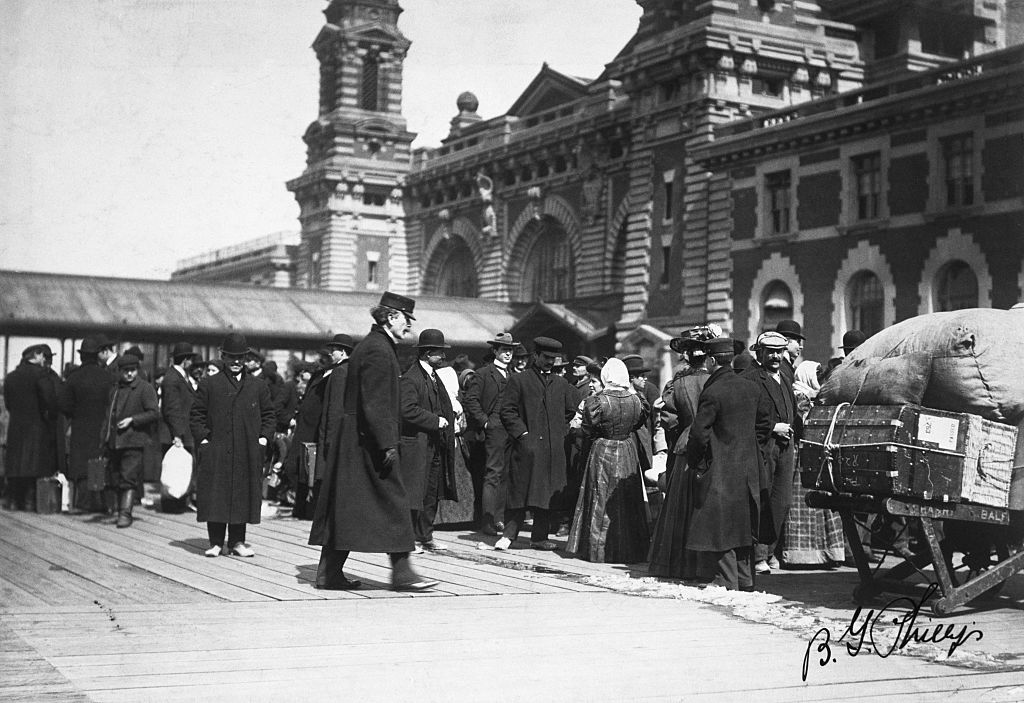There is a concept in sociology called the “Overton window”. In short, the “window” is what is allowed to be discussed by mainstream politicians and acceptable to be supported openly in society. When new ideologies rise up, their goal is always to shift the Overton window in a direction favourable to their ideas. When Nigel Farage first entered the European Parliament, his pro-Brexit United Kingdom Independence Party was at 6 per cent. By 2014, it was in first place at 26 per cent. Two years later, the UK voted to leave the European Union. The Overton window had shifted.
The Western populist-right has endeavoured to have similar success on a broader level. Before the rise of figures such as Donald Trump, Matteo Salvini, Giorgia Meloni, and Geert Wilders, certain positions – “Build a wall on the border,” “Send migrants to third-countries for processing” – were definitively outside the Overton window. Figures who argued for those positions were outcasts and doomed to perpetual low results. If they got to participate in government, as Wilders did in 2010, it was often outside the formal cabinet in confidence and supply arrangements.
But in the mid-2010s, that began to shift with the onset of the migrant crisis. The resulting societal upheaval, combined with a disturbingly long list of crimes committed by migrants (in 2023, migrants committed 41 per cent of all crimes in Germany, including 100 per cent of serious sexual crimes in Frankfurt), allowed certain ideas to proliferate and become even more accepted. Some, like Euroscepticism, were always going to stay right-coded; parties which built themselves around support for the European Union simply are not ever going to shift to calling for it to be burned down or significantly changed.
But they can be brought around on other issues. Take border walls and migrant processing. Both have taken off in popularity as common-sense solutions to the migrant crisis affecting both sides of the Atlantic. And just last week, the centre-right European People’s Party, the largest group in the European Parliament, joined the populist-right groups to pass resolutions which supported both those issues, even though they were supposed to formally have an alliance with the centrists and centre-left.
So how does this happen? How does the Overton window shift so that in ten years you have establishment centre-right parties voting with what the media frequently tars as “far-right” groups? It requires three things: proof of success, an overzealous pushback from the establishment, and buy-in from other establishmentarians.
Take just border walls. When Trump first broached the subject of border walls in his very first speech when he announced running for president in 2015, Politico mocked his address as “quixotic.” But they cannot entirely be blamed: when he announced, he and his ideas were polling at about 3 per cent. But Trump was successful in building a great part of the wall and in keeping illegal migrants out; after he left office and President Joe Biden moved into the White House, migrant entries exploded, with over 8 million encounters with illegal migrants in under four years. Now, Vice President and Democratic nominee Kamala Harris refused to speak against building more wall on the border – whiplash from just four years ago.
Likewise, when Hungary decided to build a fence on its border, Reuters called it “daunting.” One French minister said that the fence did “not respect Europe’s common values.” Orbán built it anyway – and as a result, Hungary is relatively free of migrant crimes and is considered one of the safest countries for Jews in Europe
The next ingredient in the recipe, establishment pushback, came in spades. While Orbán was in the midst of fortifying Hungary’s traditional values and literally fortifying its borders, Brussels-based bureaucrats like Guy Verhofstadt were penning op-eds calling for Hungary to be stripped of its voting rights in the EU. Plus, in an attempt to make illegal migrant arrivals seem more appealing, police in Germany were ordered to remove references to rape from their reports on the thousands of sexual assaults committed by migrants on New Years Eve in 2015.
The establishment also often uses judicial systems to attempt to throw a monkey-wrench into populist-right operations. Former Italian Interior Minister Matteo Salvini is on trial for refusing to allow a migrant ship to dock, and recently, one judge lamented in a leaked email that Meloni was a threat because she had no investigations against her. This all has the effect of turning people against intransigent establishment ideas.
But finally, it takes some of the establishment being willing to break off – and this is what happened with the European People’s Party last week. Right now, the European People’s Party controls 11 countries in the European Union. But they would have more – like in Germany – and their control would be more certain – like in Austria – if they did not have competition from the populist-right. But as long as voters want things like border walls and third-country migrant processing centres, if the EPP and allied parties cannot deliver, voters will keep going to the populist-right.
So as a result, things like the cordon sanitaire, which enforces the refusal of centrist parties to work with the populist-right, start to break down. First it happens on innocuous votes, like when the EPP voted with the populist-right in recognising the opposition as the rightful Venezuelan president. That vote triggered angry shouting from the Left and other establishmentarians – but that was it. Then cautiously, the EPP realised that they could continue voting with the populist-right, and clearly decided their next experiment would be last week’s votes on the non-binding resolutions supporting walls and third-country processing centres.
And as a result, this has all caused a shift in the Overton window. Slowly but surely, populist-right ideas are becoming mainstream ideas. And by 2029, who knows: we could look out the window and find a bona fide right-wing coalition running the show in Brussels.





Nazi-communist-fascist-whatever: this is what establishment panic looks like